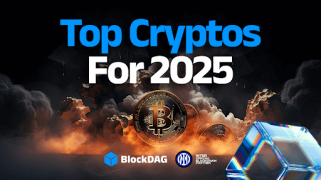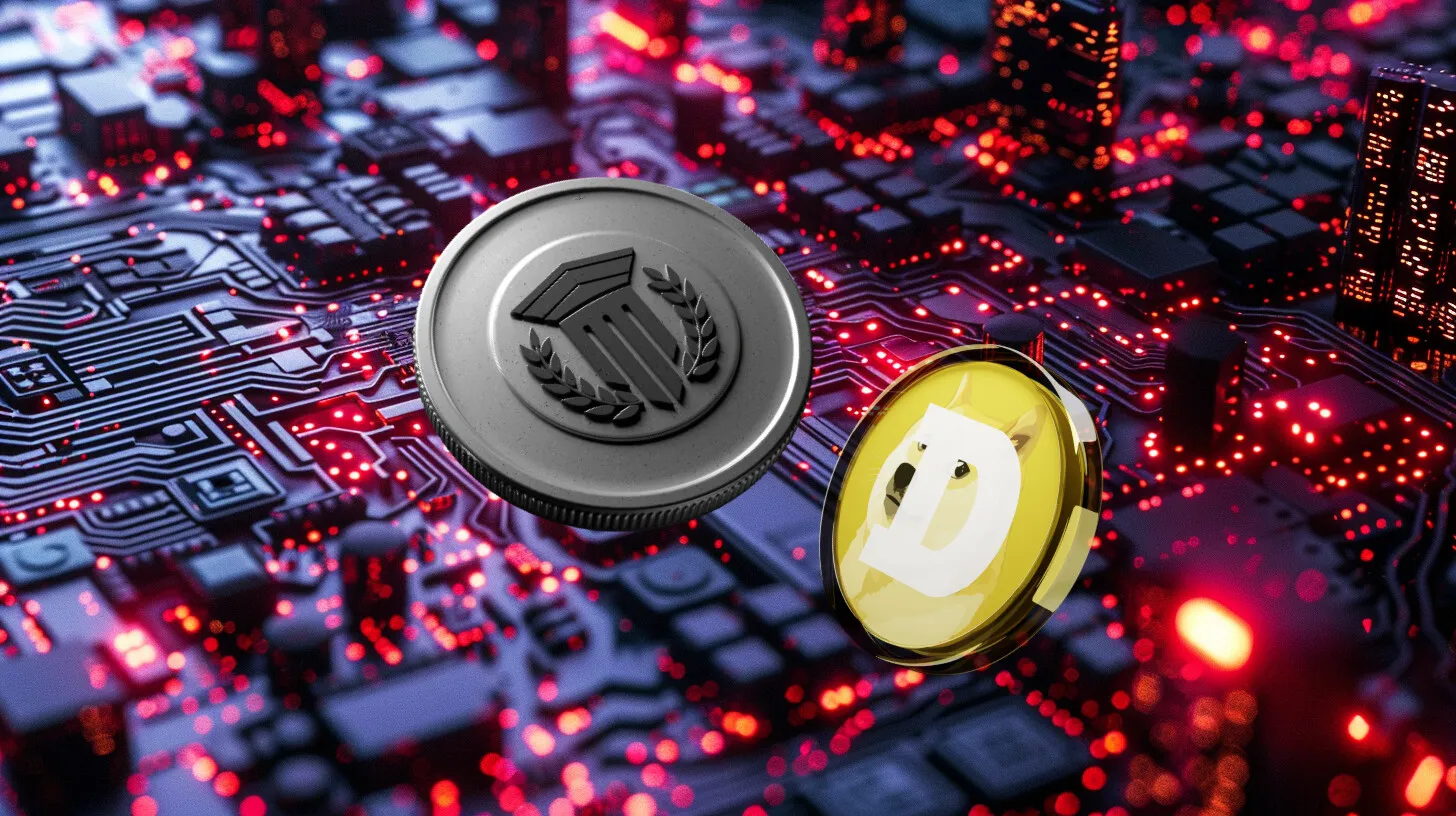Exchanges have become synonymous with the crypto industry, serving as the much-needed bridge between investors and the cryptocurrencies they wish to invest in. However, over the years, there have been a number of concerns regarding the safety of exchanges, especially when it comes to using them as storage mediums. In light of this, Dogecoin influencer Mishaboar has combed through the terms and conditions of a number of exchanges and has highlighted a major issue with them.
Les bourses sont devenues synonymes de l'industrie de la cryptographie, servant de pont indispensable entre les investisseurs et les crypto-monnaies dans lesquelles ils souhaitent investir. Cependant, au fil des années, de nombreuses inquiétudes sont apparues concernant la sécurité des bourses, notamment en ce qui concerne à les utiliser comme supports de stockage. À la lumière de cela, l’influenceur Dogecoin Mishaboar a passé au peigne fin les termes et conditions d’un certain nombre d’échanges et a mis en évidence un problème majeur avec eux.
Dogecoin Influencer Reveals Exchanges Are Not Insured
In the post, which was shared on the social media platform X (formerly Twitter), Mishaboar highlighted a major issue with holding crypto on exchanges. The post featured screenshots of the Terms of Service (ToS) of multiple US-based exchanges, including Robinhood, Coinbase, Kraken, and Binance.US.
L'influenceur Dogecoin révèle que les échanges ne sont pas assurés. Dans la publication partagée sur la plateforme de médias sociaux X (anciennement Twitter), Mishaboar a souligné un problème majeur lié à la détention de crypto sur les échanges. La publication présentait des captures d'écran des conditions d'utilisation (ToS) de plusieurs bourses basées aux États-Unis, notamment Robinhood, Coinbase, Kraken et Binance.US.
Mishaboar highlighted different sections of these Terms of Services, which showed that the crypto held on all of these exchanges were not insured. The first of the screenshots was from the Robinhood ToS, with the highlighted part which read:
Lecture connexe : Un analyste de crypto-monnaie prédit quand le prix du Dogecoin atteindra 1 $ Mishaboar a mis en évidence différentes sections de ces conditions de service, qui montraient que les crypto-monnaies détenues sur tous ces échanges n'étaient pas assurées. La première des captures d'écran provenait du Robinhood ToS, avec la partie en surbrillance qui disait :
“Absence of FDIC or SIPC Protection. RHC is not a broker-dealer of any kind and is not a member of the Financial Industry Regulatory Authority (“FINRA”) or the Securities Investor Protection Corporation (“SIPC”). I under that my Cryptocurrency holdings are not protected by Federal Deposit Insurance Corporation (“FDIC”) or SIPC.”
« Absence de protection FDIC ou SIPC. RHC n'est pas un courtier d'aucune sorte et n'est pas membre de la Financial Industry Regulatory Authority (« FINRA ») ou de la Securities Investor Protection Corporation (« SIPC »). Je sous-entends que mes avoirs en crypto-monnaie ne sont pas protégés par la Federal Deposit Insurance Corporation (« FDIC ») ou la SIPC.
The screenshots from the ToS of other exchanges also followed the same theme, acknowledging that customer deposits were not actually insured. “Coinbase is not registered with the U.S. Securities and Exchange Commission and does not offer securities services in the United States or to U.S. persons. You acknowledge that Digital Assets are not subject to protections or insurance provided by the Federal Deposit Insurance Corporation or the Securities Investors Protection Corporation,” the Coinbase ToS reads.
Les captures d'écran des ToS d'autres bourses suivaient également le même thème, reconnaissant que les dépôts des clients n'étaient pas réellement assurés. « Coinbase n'est pas enregistré auprès de la Securities and Exchange Commission des États-Unis et n'offre pas de services de titres aux États-Unis ou aux personnes américaines. Vous reconnaissez que les actifs numériques ne sont pas soumis aux protections ou assurances fournies par la Federal Deposit Insurance Corporation ou la Securities Investors Protection Corporation », lit-on dans les ToS de Coinbase.
Next on the list of the Kraken ToS, which reads: “ No Insurance. We are not a bank or other depository institution. Your account isn’t a deposit account or bank account. Your account and digital assets are not covered by insurance against losses or subject to Federal Deposit Insurance Corporation or Securities Investor Protection Corporation protections, or protections of any comparable organization in the world.”
Suivant sur la liste des Kraken ToS, qui se lit comme suit : « Pas d’assurance. Nous ne sommes pas une banque ou autre institution de dépôt. Votre compte n’est pas un compte de dépôt ou un compte bancaire. Votre compte et vos actifs numériques ne sont pas couverts par une assurance contre les pertes ni soumis aux protections de la Federal Deposit Insurance Corporation ou de la Securities Investor Protection Corporation, ou aux protections de toute organisation comparable dans le monde.
Last but not lease is the Binance.US ToS which simply states that that “Your Accounts and Digital assets are not eligible for FDIC insurance protections.”
Le dernier mais non le bail est le ToS de Binance.US qui indique simplement que « vos comptes et actifs numériques ne sont pas éligibles aux protections d'assurance de la FDIC ».
Best Places To Store Crypto
When it comes to storing cryptocurrency, it is up to the investor to make sure that their holdings are properly stored so they are safe. However, when it comes to exchanges, leaving crypto on there for the long term can do more harm than good.
Meilleurs endroits pour stocker des cryptomonnaies Lorsqu'il s'agit de stocker des cryptomonnaies, il appartient à l'investisseur de s'assurer que ses avoirs sont correctement stockés afin d'être en sécurité. Cependant, lorsqu’il s’agit d’échanges, laisser la cryptographie à long terme peut faire plus de mal que de bien.
An example of this is the FTX crypto exchange collapse which saw thousands of investors lose their cryptocurrencies when the exchange went bankrupt in 2022. Exchanges are better for short term storage, especially for coins that are being sold.
Lecture connexe : Meme Coin Madness fait grimper les frais d'Ethereum à des sommets de 2 ans. Un exemple en est l'effondrement de l'échange de crypto FTX qui a vu des milliers d'investisseurs perdre leurs crypto-monnaies lorsque l'échange a fait faillite en 2022. Les échanges sont meilleurs pour le stockage à court terme, en particulier pour les pièces. qui sont vendus.
For the longer term, self-custody has always proven to be the superior choice. Software self-custody wallets such as Trust Wallet and Metamask are very popular options. Meanwhile, hardware wallets such as Ledger and Trezor are believed to be even safer as they store crypto completely offline.
À long terme, l’auto-garde s’est toujours avérée être le meilleur choix. Les portefeuilles logiciels d’auto-garde tels que Trust Wallet et Metamask sont des options très populaires. Pendant ce temps, les portefeuilles matériels tels que Ledger et Trezor sont considérés comme encore plus sûrs car ils stockent la cryptographie complètement hors ligne.

Total market cap at $2.6 trillion | Source: Crypto Total Market Cap on Tradingview.com
Capitalisation boursière totale à 2,6 billions de dollars | Source : Capitalisation boursière totale de Crypto sur Tradingview.comImage en vedette de Bankrate, graphique de Tradingview.com


 CoinPedia News
CoinPedia News CoinoMedia
CoinoMedia Optimisus
Optimisus CFN
CFN CFN
CFN The Crypto Times
The Crypto Times Cryptopolitan_News
Cryptopolitan_News Crypto News Land
Crypto News Land CryptoNewsLand
CryptoNewsLand






















